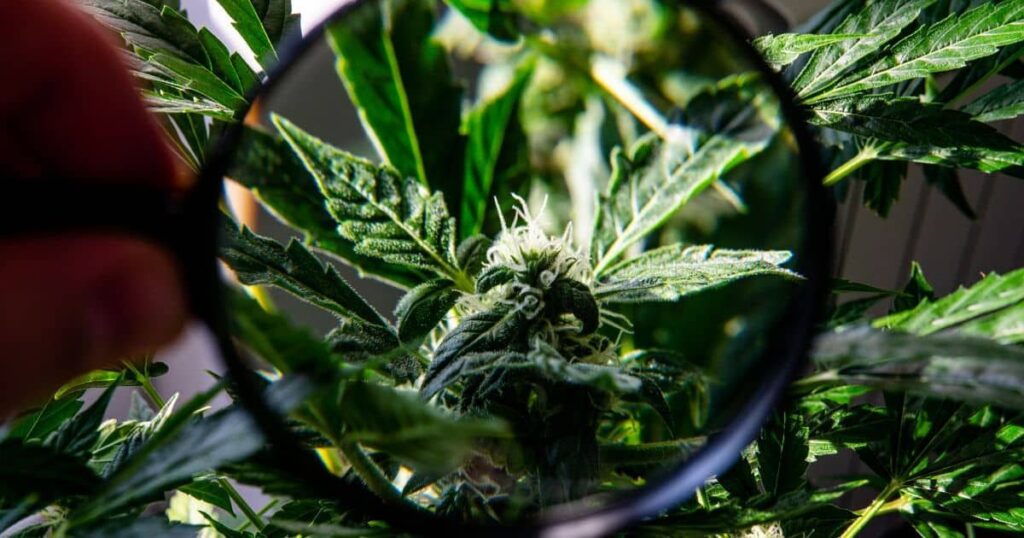A recent legal ruling has brought forward information about Viridis Laboratories, one of Michigan’s largest cannabis testing companies. An administrative law judge found that the labs, founded by former Michigan State Police officers, repeatedly violated state regulations. The violations include using unapproved testing methods, inflated THC numbers, and misreporting potentially hazardous cannabis products, raising serious concerns about consumer safety and the integrity of Michigan’s regulated marijuana market.
Allegations of Inflated THC Levels and Poor Testing Standards
Greg Michaud, Todd Welch, and Dr. Michele Glinn founded Viridis Laboratories in 2018. All three are former Michigan State Police employees with extensive experience in forensics and toxicology. Viridis became a major player, testing an estimated quarter-million pounds of cannabis flower annually. However, as the labs rose to prominence, the state’s Cannabis Regulatory Agency (CRA) began receiving reports.
The CRA initiated investigations following numerous complaints about suspiciously elevated THC levels reported by Viridis, as first reported by the Detroit Metro Times. Inflating THC levels can mislead consumers into believing that specific cannabis products are stronger and thus more desirable, which directly affects product pricing and sales. Additionally, Viridis faced allegations of downplaying health hazards such as microbial contamination.
One particularly egregious example involved Viridis technicians approving visibly mold-contaminated samples by misidentifying the mold as “mite feces,” a claim revealed during the tribunal hearings. Inspectors also discovered that the lab had conducted analyses using lower magnification levels than required to detect contaminants. Such actions not only violated industry standards but also put customers at risk of consuming unsafe products.
Viridis Laboratories in Michigan’s Largest Cannabis Recall
Viridis Laboratories’ practices came under heightened scrutiny in late 2021, following Michigan’s largest cannabis recall. The CRA deemed Viridis’s testing unreliable, leading to the removal of cannabis products worth an estimated $229 million from dispensaries across the state. Hundreds of stores were affected, and numerous small businesses within the cannabis supply chain reported devastating financial losses.
Previously, cannabis labs in Michigan only needed to maintain an approved Standard Operating Procedure (SOP) but were not required to follow or validate it. Viridis exploited this loophole, continuing operations with minimal accountability. The recall caused the CRA to implement stricter oversight of testing facilities.
Unsurprisingly, Viridis responded to the CRA’s actions with legal resistance. The labs accused the agency of bias, claiming that the investigations were driven by a vendetta aiming to damage their market share. They argued that regulators ignored standard industry practices and involved rival labs inappropriately during their probes.
However, the judge dismissed these accusations, finding no evidence of bias or wrongdoing by the CRA. Instead, the tribunal concluded that inspections were valid responses to specific red flags, including anomalously high THC findings and the approval of moldy products. Notably, CRA data showed that Viridis’s Lansing lab reported suspected Aspergillus contamination 89% less frequently than other testing facilities—an inconsistency that raised further questions about data reliability and testing accuracy.
Cannabis testing is a massive component of consumer safety and product integrity. Reliable practices are especially important in a market where medical patients depend on accurate labeling and testing.
While Viridis remains operational and continues to hold a significant portion of the testing market, its reputation has taken a severe hit. Reports of inflated THC levels have led some products carrying the Viridis seal to be boycotted by discriminating cannabis consumers.
Ethical Concerns and Accountability
The ethical questions raised by this case extend well beyond Viridis Laboratories. How did former law enforcement officials, well-versed in forensic science and regulatory compliance, fail to uphold basic industry standards in their lab? The apparent willingness to prioritize profits over public safety undermines the credibility of Michigan’s regulated market.
This case highlights the critical need for cannabis companies to have transparency and accountability. The CRA’s ability to uncover violations and impose sanctions demonstrates the importance of a regulatory infrastructure. However, addressing gaps in oversight, like the previously lenient SOP validation rules, is essential to rebuild trust in the system.
The Judges’ ruling and findings mark a step toward holding industry participants accountable and protecting public health. The CRA will decide the scope of sanctions against Viridis, which could include fines or license suspensions.
The findings against Viridis Laboratories have revealed serious shortcomings in Michigan’s cannabis testing industry, as we’ve seen from several states with legal cannabis industries across the US. At its core, the issue revolves around trust—trust in the products, trust in the regulators, and trust in the companies operating within the cannabis industry.

















